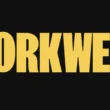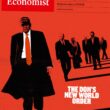It is 50 years since the ground-breaking Euromoney magazine was launched by the UK’s Daily Mail Group whose finance editor Patrick Sergeant had predicted the expansion of international banking as a result of the UK’s relaxed foreign exchange regulations. Euromoney championed the boom and became the leading magazine of the financial wholesale markets.
The £6,200 of capital invested in the monthly magazine (£6k from the Daily Mail and £200 from Sergeant himself) created what has become a £1.4bn UK listed B2B information business, self-described as a provider of “critical data, price reporting, insight, analysis and must-attend events to financial services, commodities, telecoms and legal markets.” Its key brands include: Euromoney, Institutional Investor, BCA Research, Ned Davis Research, Metal Bulletin, American Metal Market, Insurance Insider, and IJ Global, and the recently-acquired BoardEx and The Deal.
Its growth helped also to propel the transformation of Daily Mail & General Trust (DMGT) into a vibrant all-media group which has been able to support the systemic decline of its news brands with the proceeds of successful startups, none more so than Euromoney.
Euromoney Institutional Investor Plc (“Euromoney”) built a formidable reputation in B2B media through its ability to crank out long-term profit growth from diversification into conferences, tight cost control, and highly-successful M&A. It was also very good at selling high-priced advertorials in its prestige publications – decades before “content marketing” was everywhere. The company (a DMGT subsidiary, even as a listed company for the past 30 years) also became known for super-generous senior executive remuneration, which irked powerless minority investors.
This year, it has all changed. DMGT has sold-off its majority stake and Euromoney is an independent company for the first time.
That may be a mixed blessing for CEO Andrew Rashbass (ex Reuters and The Economist). He does not have the pay deal that gave one of his predecessors annual remuneration of millions of pounds as a result of a “secret” bonus scheme paying him 6% of profits. But Rashbass is enjoying his new-found independence. Even after recent half-year results showed revenue decline in the investment research businesses that had long powered the company’s global growth, he regaled investors with his “B2B Information 3.0” strategy which commits the company to vital workflow tools for clients – as opposed to “flat” magazine-like services in print and digital.
The strategy features continuing investment in Price Reporting Agencies (PRAs) first acquired with Metal Bulletin all of 13 years ago and augmented through more recent deals to cover metals, mining and forest products. During the first half of its financial year, Euromoney’s “pricing, data & market intelligence” division increased revenue by 3% to £89.7m (more than 50% of the company total). Profits also increased by 3% to £32.7m (50%). But it’s a lot more patchy than it seems and “market intelligence” includes some mixed information services and events. Further, some 50% of all Euromoney revenue came from events, more than half of which were in this “pricing” division – but which themselves were 4% down on the corresponding period of 2018.
Investors are sometimes comforted by the very word “events” because it seems to connect with the soaring fortunes (and values) of trade exhibitions. But many of Euromoney’s events are conferences which can be highly cyclical, with relatively low competitive barriers. Even trade shows can be over-sold. A clue to how a perfectly good company can feel compelled to squeeze its results into a visionary strategy is gained from Euromoney’s description of its ITW (formerly International Telecoms Week) as a “3.0” event which fits into telco workflows. Really, it’s a (very strong) global trade show but not part of the market pricing services which Euromoney is targeting and which may eventually make even super-profitable events non-strategic – and subject to competition from exhibition specialists. It’s a reminder that the transformation still has a way to go. Interestingly, the “banking & finance” division (which includes the Euromoney brand itself) accounted for only 5% of profits in the first-half results.
But an M&A step-up may be on the way. PRAs are attractive because they are the “official” prices which govern trading in the world’s commodity markets. They are the exclusive information sources which facilitate transactions, consulting and high-value research. In many ways, Metal Bulletin (acquired by Euromoney for £200m in 2006) was a PRA pioneer. The operation (now known as FastMarkets MB) began life in 1913 as a spin-off from The Ironmonger magazine, to service the global markets using the London Metal Exchange (LME) for price discovery and risk management. Fast forward a century and the £200m-revenue Argus Media owns many of the pricing indices across energy, metals, petrochemicals and coal. It’s the second largest of the PRAs after energy specialist Platts (part of McGraw Hill). Three years ago, General Atlantic private equity paid £1bn for a 50% share in Argus. It, reportedly, now wants to sell half its stake. Is it too big a deal for Euromoney in 2019?
Rashbass may, instead, go for the privately-owned CRU Group (formerly Commodities Research Unit) which is also celebrating its 50th anniversary. The £35m-revenue London-based company has PRAs across mining, metals and fertilisers. Its 280 employees include analysts and price assessors in London, Pittsburgh, Santiago, Delhi, Mumbai, Shanghai, Beijing and Sydney. It is believed Euromoney and CRU have had abortive “collaboration” discussions in the past. They would be a good fit. Perhaps the trigger now could be the fact that, having both tendered for an LME aluminium price contract, they were awarded it jointly. Euromoney and CRU are working together for the first time, so who knows what’s next?
Then, there is the private equity-owned, £30m-revenue AgriBriefing which has shifted from UK farming news, information and events to acquire agriculture PRAs in France and the US. But it recently failed to buy Informa’s coveted AgriBusiness Intelligence (acquired, instead, by IHS Markit which also knows a thing or two about PRAs). AgriBriefing’s proposed deal would have involved a new private equity owner which may not have wanted to retain the UK company’s lower-value publishing and events alongside its data growth business. So, it may be open to a sell-off.
Euromoney (with no current borrowings) could probably acquire both CRU and AgriBriefing for some £250m. The acquisitions could be transformative, and a precursor to selling-off some of the brands which once defined this remarkable company. Just watch.




